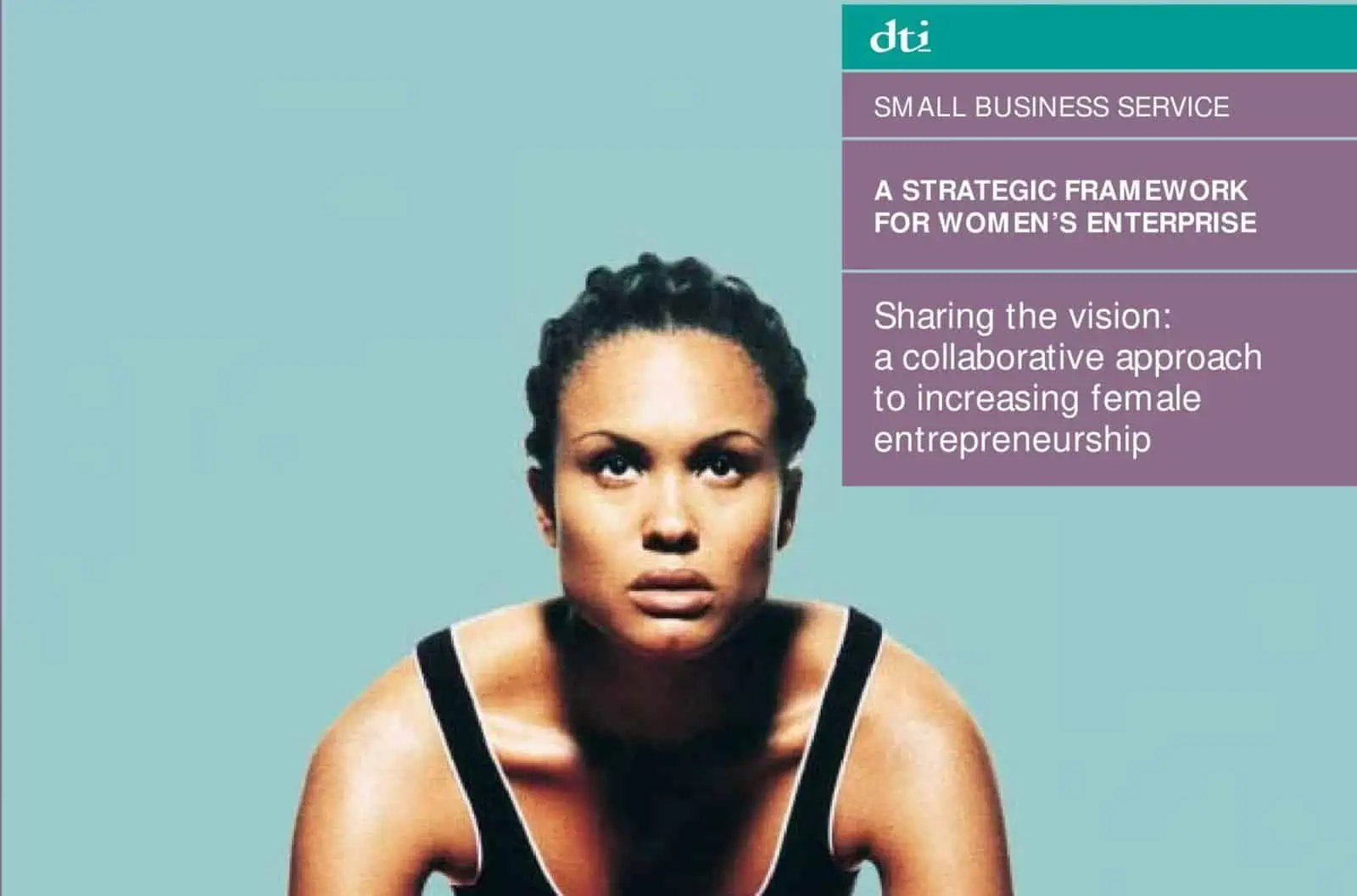Here is the archive of Prowess publications from 2002-2009. These are largely policy and research reports and resources for policy makers, academics, journalists, researchers, and those providing support to women in business. You can download PDFs of all of those reports below. If you are looking for up-to-date statistics and facts about women in business or enterprise, see here.
Restricted Access: Women-owned Business in Profile (2002)
Professor Sara Carter, Dr Stephen Tagg, Jackie Brierton. Prowess, October 2002.
This report presents a profile of women-owned businesses in the United Kingdom. The data is drawn from a survey undertaken by the University of Strathclyde for the Federation of Small Businesses (FSB), published in May 2002. In total, 18,561 FSB members responded to the survey, of whom 1,750 (9%) stated that their business was wholly female-owned. In comparison, nearly 44% of respondents stated that their business was wholly male-owned and 42% that their business was owned jointly by men and women. Women-owned businesses are an important element of the SME sector and, as this profile shows, the characteristics of their businesses are rather different to the majority.
Download the report: Restricted Access: women-owned business in profile. 2002
A Strategic Framework for Women’s Enterprise (2003)
Department of Trade & Industry, 2003.
 This document represents the first UK Government women’s enterprise strategy. It was produced by the Small Business Service in the DTI, in collaboration with Prowess and other key government departments. Prowess was commissioned to develop and disseminate the Framework. The Strategic Framework prepared the ground for a collaborative and long-term approach to the development of women’s enterprise in the UK.
This document represents the first UK Government women’s enterprise strategy. It was produced by the Small Business Service in the DTI, in collaboration with Prowess and other key government departments. Prowess was commissioned to develop and disseminate the Framework. The Strategic Framework prepared the ground for a collaborative and long-term approach to the development of women’s enterprise in the UK.
Download the report: A Strategic Framework for Women’s Enterprise (DTI 2003)
Who Benefits? The difficulties for women in making the transition from unemployment to self-employent (2003)
Susan Marlow, Andrea Westall & Erika Watson. New Economics Foundation & Prowess 2003.
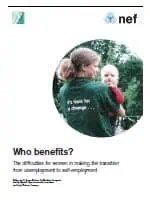 This report looks at the issues women face when moving from welfare benefits into self-employment. Women are much more likely to start a business from unemployment, but much less likely to fit into government support schemes. Key obstacles include the low level of earnings disregard, short test trading periods, a system which is designed for full-time work rather than a more gradual transition via a part-time start-up. The report concludes with recommendations for an effective welfare to self-employment programme for women.
This report looks at the issues women face when moving from welfare benefits into self-employment. Women are much more likely to start a business from unemployment, but much less likely to fit into government support schemes. Key obstacles include the low level of earnings disregard, short test trading periods, a system which is designed for full-time work rather than a more gradual transition via a part-time start-up. The report concludes with recommendations for an effective welfare to self-employment programme for women.
Download the report: Who Benefits? The difficulties for women in making the transition from unemployment to self-employment. NEF/ Prowess 2003.
US Study Trip Report (2004)
This report summarises the experience of a group of key individuals from PROWESS, Government departments, the Regional Development Agencies, and the Royal Bank of Scotland Group, who visited leading players in the USA to see what could be learned.
Download the report: US Study Trip Report 2004
Between 2000 and 2006, the DTI supported a number of projects across the UK which aimed to find innovative ways of supporting disadvantaged and under-represented groups to become more enterprising. This report brings together best practice from projects which targeted women. It includes chapters on access to finance, outreach and enterprise culture and projects which targeted specific groups including black and minority ethnic women, welfare benefits recipients and lone parents.
Download the report: Bridging the Enterprise Gap: strategies to support socially excluded women into self-employment 2004
Show Us the Money: the State of Women’s Enterprise Support (2004)
Two years after the launch of the UK government’s first strategy for women’s enterprise, this report revealed to what extent the business support sector was enabled to deliver the strategy. It included responses from over 100 Prowess members. The report concluded that the Strategic Framework for Women’s Enteprise had fueled an enthusiastic and committed sector, but that this committmetn was not yet being matched by a coherent business support funding strategy.
Download the report: Show us the money: the state of women’s enterprise support. 2004
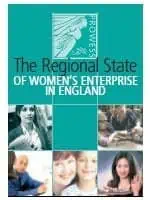 The Regional State of Women’s Enterprise in England (2005)
The Regional State of Women’s Enterprise in England (2005)
This comprehensive report includes gender analyses of key data sets (GEM, LFS, SBS), indepth regional case studies and on overview of various government policy initiatives aimed at fostering greater female entrepreneurship.
Download the report: The Regional State of Women’s Enterprise in England 2005
Business Support with the ‘F’ Factor (2005)
A multi-lateral approach to providing female-friendly business support for all women
This report explored the objective of the government’s Women’s Enterprise Panel – that every woman in every region has access to high quality female-friendly business support from the pre pre-start-up stage onwards. It examined how that could be achieved within the framework of government business support that existed in 2005. The report recommended a set of 6 guiding principles, which included: transformational support; targeted services braided with mainstream provision; quality standards; local bottom up approach; integration with skills agenda; a long-term approach.
Download the report: Business Support with the ‘F’ Factor: a multi-lateral approach to providing female-friendly business support for all women. 2005
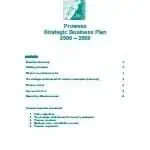 Prowess Strategic Business Plan (2006-2009)
Prowess Strategic Business Plan (2006-2009)
Since its launch in 2002, Prowess had established a community of organisations committed to a women-friendly enterprise culture. Prowess’s existence had accelerated a strategic approach to women’s enterprise within Government for the first time: within a year of launch Prowess had assisted the Small Business Services, within the DTI, to produce the Strategic Framework for Women’s Enterprise. Prowess further advocated for and achieved the Women’s Enterprise Task Force, announced in 2006. This business plan builds on those foundations and Prowess’s established reputation, brand and capabilities. It looks to broaden and sustain Prowess’s impact through smarter communications, champions, advocates and strategic partners.
Download the reports:
Prowess Strategic Business Plan 2006-2009
Prowess Business Plan 2006-09 Annexes
Stairways to Growth: supporting the ascent of women’s enterprise in the UK (2006)
This report is based on statistical analysis of the Global Entrepreneurship Monitor UK data since 2002 and on a qualitative, indepth survey of 20 practitioners, academics and analysts. Key findings include the fact that while the gender gap in start-ups was narrowing, it remained much wider as businesses grow. Women are more likely to be using new technologies in their businesses. Access to finance remains a key issue for women. Rural women and black African women are significantly more entrepreneurial than all women.
Download the report: Stairways to Growth: supporting the ascent of women’s enterprise in the UK. 2006
Prowess Manifesto 2007
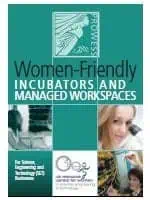 Women-friendly incubators and managed workspaces (2007)
Women-friendly incubators and managed workspaces (2007)
The report “Women-Friendly Incubators and Managed Workspaces for Science, Engineering and Technology (SET) Businesses” by Prowess examines the underrepresentation of women in SET entrepreneurship and the role of incubators in addressing this disparity. It highlights that over 70% of women with SET qualifications in the UK are not employed in related fields, leading to a significant loss of talent and economic potential. The report identifies key barriers for women entrepreneurs, including limited access to finance, networks, and flexible working environments. To mitigate these challenges, the report recommends that incubators adopt women-friendly practices such as providing mentorship programs, facilitating networking opportunities, offering flexible tenancy agreements, and creating inclusive cultures. By implementing these strategies, incubators can better support women in establishing and growing SET businesses, thereby contributing to a more diverse and innovative economic landscape.
Download the report: Women-friendly incubators and managed workspaces 2007
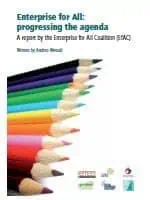 Enterprise for All: Progressing the Agenda (2007)
Enterprise for All: Progressing the Agenda (2007)
Written by Andrea Westall
Published by the Enterprise for All Coalition, which included Prowess, PRIME, CDFA, Social Enterprise Coalition, NFEA and BTEG.
This report reviews the evidence which shows why it is important to support ‘Enterprise for All’, the difficulties in achieving this goal and the appropriate role of government. The report concludes that through meeting diverse client needs, enterprise culture and take-up of all kinds of business support – public, private or third sector – by disadvantaged and under-represented people, groups and areas, will increase. As a result, economic, as well as the broader personal and social, impacts of ensuring ‘Enterprise for All’ will be better met.
Download the report: Enterprise for All: progressing the agenda 2007
Women’s Enterprise Mentoring (2008)
The “Women’s Enterprise Mentoring 2008” report, prepared by the Prowess National Policy Centre (PNPC) and funded by the Department of Business, Enterprise and Regulatory Reform (BERR), explores the significance of mentoring in supporting women entrepreneurs in the UK. Recognizing that over one million women are self-employed, constituting 27% of the self-employed population, the report highlights the unique challenges women face in sustaining and growing their businesses. Mentoring is identified as a critical tool that provides relational and holistic support, aligning with the preference of many women for transformational assistance that considers the interplay between business and personal responsibilities. The report underscores the necessity of establishing a National Women’s Enterprise Mentoring Network (NWEMN) to integrate and enhance existing mentoring services across England. Key recommendations include adopting a clear definition of mentoring distinct from coaching, ensuring mentors possess relevant experience, and fostering long-term mentor-mentee relationships. By implementing these strategies, the report suggests that mentoring can significantly contribute to the survival and growth of women-owned businesses, thereby promoting gender equality in the entrepreneurial landscape.
Download the report: Women’s Enterprise Mentoring 2008
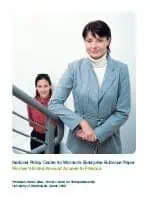 Access to Finance (2009)
Access to Finance (2009)
The “Access to Finance” report by the National Policy Centre for Women’s Enterprise (NPCWE) examines the challenges women entrepreneurs face in securing funding in the UK. It highlights that women-owned businesses often encounter systemic barriers, including gender biases, limited collateral, and a lack of tailored financial products. The report emphasizes the need for financial institutions to adopt more inclusive lending practices and for policymakers to implement supportive measures. Recommendations include developing gender-sensitive financial instruments, providing financial literacy training for women entrepreneurs, and fostering networks to facilitate better access to capital. By addressing these issues, the report suggests that improving access to finance for women-led businesses can significantly contribute to economic growth and gender equality.
Download the report: Access to Finance 2009
 Procurement: Fostering Equal Access for Women’s Enterprise (2009)
Procurement: Fostering Equal Access for Women’s Enterprise (2009)
This report examines the challenges and opportunities for women-owned businesses in accessing procurement markets. It highlights that women-owned enterprises often face barriers such as limited access to information, networks, and resources, which hinder their participation in procurement processes. The report emphasizes the importance of implementing supportive policies and practices to promote inclusivity. Recommendations include enhancing transparency in procurement procedures, providing targeted training and capacity-building programs for women entrepreneurs, and fostering collaborations between public and private sectors to create more opportunities for women-owned businesses. By addressing these issues, the report suggests that procurement can serve as a significant avenue for advancing women’s economic empowerment and achieving broader gender equality objectives.
Download the report: Procurement: Fostering Equal Access for Women’s Enterprise. 2009
 Women in SET Enterprise (2009)
Women in SET Enterprise (2009)
This report examines the underrepresentation of women in SET sectors and the challenges they face. It highlights systemic barriers such as gender stereotypes, lack of role models, and workplace cultures that hinder women’s participation and advancement in these fields. The report emphasizes the importance of creating supportive environments through policy interventions, mentorship programs, and organizational changes to promote gender diversity. It also discusses the economic and social benefits of increasing women’s representation in SET, including enhanced innovation and addressing skill shortages. Recommendations include implementing targeted recruitment and retention strategies, providing flexible working arrangements, and fostering inclusive cultures to support women’s careers in SET.
Download the report: Women in SET enterprise 2009
 Supporting Women in Business: Top tips for Business Advisers (2009)
Supporting Women in Business: Top tips for Business Advisers (2009)
The “Top Tips for Business Advisers: Supporting Women in Business” guide, published by NWES in 2009, serves as a comprehensive resource for business support providers aiming to enhance services for women entrepreneurs. It underscores the economic imperative of fostering female entrepreneurship, noting that women in the UK are less than half as entrepreneurial as men, and bridging this gap could yield significant economic benefits. The guide addresses systemic challenges faced by women, including limited access to finance, underrepresentation in high-growth sectors, and the need for work-life balance. It offers actionable strategies across various domains:
- Marketing and Outreach: Implementing targeted campaigns to attract women entrepreneurs.
- Access: Ensuring services are inclusive and accessible.
- Organisational Culture: Cultivating an environment supportive of women’s needs.
- Training Programmes: Designing courses that address specific challenges faced by women.
- Continuing Support: Providing ongoing mentorship and resources.
- Access to Finance: Facilitating better financial support mechanisms.
- Supporting Growth: Assisting women-led businesses in scaling operations.
Additionally, the guide highlights legal considerations, including gender equality duties and anti-discrimination laws, emphasizing the importance of compliance in delivering effective support. By adopting these recommendations, business advisers can play a pivotal role in empowering women entrepreneurs, thereby contributing to a more inclusive and robust economy.
Download the report: Supporting women in business: top tips for business advisers. 2009
Prowess Profile Magazine (2003 -2007)
Prowess Profile magazine highlighted initiatives and developments in women’s enterprise across the UK during the 2000s.
Prowess Profile Issue 1 2003
The inaugural issue of “Prowess Profile,” published in Spring/Summer 2003, serves as a comprehensive resource highlighting initiatives and developments in women’s enterprise across the UK. The publication underscores the political and economic significance of fostering female entrepreneurship, referencing government reports that advocate for increased support. Key features include insights into the Prowess launch event, where Secretary of State for Trade and Industry Patricia Hewitt emphasized the vital role of women entrepreneurs in the economy and acknowledged the unique challenges they face, such as access to finance and balancing responsibilities. The issue also showcases various regional initiatives aimed at supporting women in business, including loan funds, training programs, and networking opportunities. Additionally, it provides a summary of recent research and policy developments pertinent to women’s enterprise. The publication aims to inform and inspire professionals working to develop women-friendly business support and financial services, fostering a more inclusive and dynamic entrepreneurial landscape in the UK.
Download Prowess Profile magazine Issue 1 2003
Prowess Profile Issue 2 2004
The second issue of “Prowess Profile,” published in Spring/Summer 2004, provides an in-depth look into the advancements and ongoing challenges in women’s enterprise within the UK. The publication highlights the inaugural Prowess Annual Conference, “Women and Enterprise: Making Waves,” held in Brighton from November 5-7, 2003. This event convened over 200 delegates to discuss the practical implementation of the Strategic Framework for Women’s Enterprise. Keynote speakers, including the Rt Hon Dawn Primarolo MP and Baroness Jay, emphasized the necessity of female-specific business support schemes and the fundamental role of women in enhancing productivity. The conference facilitated discussions leading to commitments such as the appointment of regional coordinators and the development of regional women’s enterprise strategies, with organizations like SEEDA and emda pledging resources to advance these objectives. Additionally, the publication addresses findings from the UK Global Entrepreneurship Monitor (GEM) report, which indicates a decline in traditional enterprise startups among women, despite their significant involvement in social and community entrepreneurship. This underscores the need for targeted policies and support systems to bridge the gender gap in traditional business ventures.
Download: Prowess Profile magazine Issue 2. 2004
Prowess Profile Issue 3 2004
The third issue of “Prowess Profile,” published in Autumn/Winter 2004, delves into the progress and challenges in women’s enterprise development within the UK. A significant highlight is the exploration of the United States’ approach to supporting women entrepreneurs, particularly through the establishment of the Office of Women’s Business Ownership and the implementation of the Women’s Business Ownership Act of 1988. The publication discusses the impact of Women’s Business Centres (WBCs) in the U.S., noting their role in providing comprehensive support services to women entrepreneurs. Additionally, the report emphasizes the importance of access to procurement opportunities for women-owned businesses, citing the efforts of the Women’s Business Enterprise National Council (WBENC) in facilitating connections between women entrepreneurs and over 500 companies and government agencies. The issue also underscores the necessity of a unified approach to policy and advocacy, highlighting the role of the National Women’s Business Council in the U.S. as a model for effective collaboration among stakeholders. Overall, the publication provides valuable insights into international best practices and offers recommendations for enhancing support structures for women entrepreneurs in the UK.
Download: Prowess profile magazine. Issue 3. 2004
Prowess Profile Issue 4, 2005
The fourth issue of “Prowess Profile,” published in Spring/Summer 2005, highlights significant developments in women’s enterprise within the UK. Key findings from the Small Business Research Trust (SBRT) reveal that women-led businesses are outperforming their male counterparts in sales and employment growth. Specifically, 44% of female-led firms reported sales growth in the third quarter of 2004, surpassing the average by 7%, and nearly 30% recruited new staff during the same period. These statistics challenge the stereotype that female-owned businesses exhibit less growth potential.
The publication also discusses the Government-appointed Women’s Enterprise Panel’s Action Plan, which emphasizes the pivotal role of Regional Development Agencies (RDAs) in ensuring accessible, high-quality, female-friendly business support across all regions. Prowess has incorporated these recommendations into their “Manifesto for Women’s Enterprise,” outlining policy objectives for fostering an inclusive and progressive enterprise culture.
Additionally, the issue features insights from Women and Equality Minister Jacqui Smith, who, during a reception at Lancaster House on International Women’s Day, underscored the economic importance of promoting female entrepreneurship. The Department of Trade and Industry (DTI) also released a booklet titled “Promoting Female Entrepreneurship,” detailing the economic rationale for supporting women’s enterprise.
Overall, this issue of “Prowess Profile” showcases the growing impact of women entrepreneurs in the UK and the concerted efforts by various stakeholders to support and enhance women’s enterprise development.
Download: Prowess Profile magazine. Issue 4. 2005
Prowess Profile magazine. Issue 5. 2005
Prowess Profile magazine. Issue 6. 2006
Prowess Profile magazine. Issue 7. 2007

